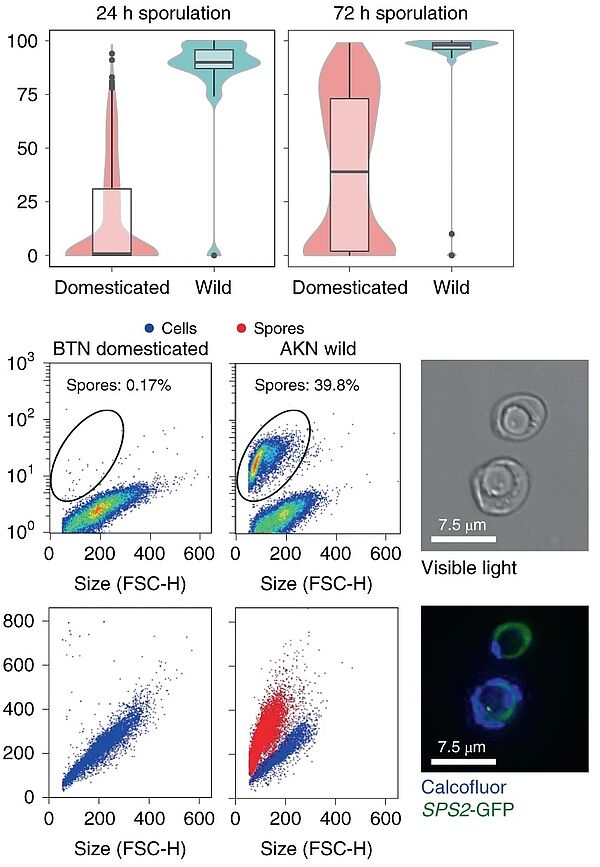Domestication reprogrammed the budding yeast life cycle.
Matteo De Chiara, Benjamin P Barré, Karl Persson, Agurtzane Irizar, Chiara Vischioni, Sakshi Khaiwal, Simon Stenberg, Onyetugo Chioma Amadi, Gašper Žun , Katja Doberšek, Cristian Taccioli, Joseph Schacherer, Uroš Petrovič, Jonas Warringer, Gianni Liti.
Domestication of plants and animals is the foundation for feeding the world human population but can profoundly alter the biology of the domesticated species. Here we investigated the effect of domestication on one of our prime model organisms, the yeast Saccharomyces cerevisiae, at a species-wide level. We tracked the capacity for sexual and asexual reproduction and the chronological life span across a global collection of 1,011 genome-sequenced yeast isolates and found a remarkable dichotomy between domesticated and wild strains. Domestication had systematically enhanced fermentative and reduced respiratory asexual growth, altered the tolerance to many stresses and abolished or impaired the sexual life cycle. The chronological life span remained largely unaffected by domestication and was instead dictated by clade-specific evolution. We traced the genetic origins of the yeast domestication syndrome using genome-wide association analysis and genetic engineering and disclosed causative effects of aneuploidy, gene presence/absence variations, copy number variations and single-nucleotide polymorphisms. Overall, we propose domestication to be the most dramatic event in budding yeast evolution, raising questions about how much domestication has distorted our understanding of the natural biology of this key model species.

